How to Start Your Debt-Free Journey & Stick to a Budget

I like to share our family's debt-free journey to pay off over half a million dollars of debt, and I want to specifically talk about how to create a budget and how to stick to it once you have it. Getting started seems to be one of the things that people struggle with the most.
If you're starting your debt-free journey and struggling, these tips are for you.
1. Pause spending
First, I recommend pausing your spending and doing a no-spend for one to three months. When we started our debt-free journey, we were behind. When we just sat down and decided not to spend a single dime on anything except for what we had to, all of a sudden, that gave us a sense of calm.
Once we could pause our spending, we realized that we needed X amount of money to get by for our actual bills. That gives you a more tangible starting number instead of just what you think you're spending every month.
2. Accept reality
If you're just getting started with budgeting, you might be gung ho and think you will cut your grocery budget by 80% in the first month. It's just really hard to go from spending willy-nilly to suddenly reducing your expenses, watching everything, and planning everything.
You can set yourself up for disappointment if you aren't realistic with yourself.
So maybe reduce the budget by 20%. Or instead of eating out four nights a week, go down to one night a week, and then it's not like everything got stripped away from you instantly.
Also, accepting reality is based on what you make versus how much debt you have. You can only cut your expenses so far until an income increase is going to be necessary. Sometimes that means accepting you'll need a second job, a job change, or a side hustle.
3. Have a strong conviction for why you want to do this
We reached a rock bottom point of desperation where we needed to do something drastic. The desperation at first is what drove us.
Then it turned into, wow, I can see how our children's lives will be changed because they won't need to take out student loans for school if we do this plan. I can see how if we keep budgeting and working hard, we could have paid for a house in a few years and then be able to invest.
4. Get hopeful
This goes along with the why, but having hope, seeing the end, and the light at the end of the tunnel, is very helpful in motivating you. Be hopeful instead of living in a depressed state where you don't see how it will happen.
If you don't have hope, you lose something. Once you can see even a little bit of progress, you get hope. Hope is so essential on your budgeting and debt-free journey.
5. Pay cash or debit whenever you can
If you're struggling with your budget, having fewer things coming in and out of your account and having to pay and organize can be helpful. At the start of our debt-free journey, we took the cash out to buy groceries.
Seeing expenses laid out in cash was so helpful, and it helped us manage our budget because we would withdraw money at the beginning of the month and put it in our cash envelopes, and we were ready to go.
We didn't have to worry about overspending because we could physically see the cash, and you can't spend what you don't have.
6. Plan ahead
Have a planning meeting. See if it is someone's birthday this month, or do we have friends' birthdays to which we'll get invited? Anything you can plan for, do it because it's going to make your budget.
If you can, look at what's coming up, what activities, what sports fees are due for baseball season, et cetera. If you plan, you'll have fewer surprises and fewer busted budgets.
On that note of planning ahead, also plan to have some fun money so you don't feel restricted and you don't feel you can't do anything fun. If you plan your fun money, it's like an allowance.
7. and 8. Meal planning and grocery shopping online
One of the most important things to your budget is your food budget; therefore, meal planning and grocery shopping online are crucial.
Do your list online first, so you can see the amount and have a better idea of precisely what you will be spending before you even go into the store. This is key to keeping that grocery budget low, especially with inflation and grocery prices.
Planning out your meals for the month and eating at home more work to save money. You don't worry about what you're making for dinner that night because everything is planned out for the month.
9. Check your budget every single day or your bank account every single day to make sure that you're on track
Checking your budget every day might seem tedious or annoying. I use the Dave Ramsey Every Dollar app, so everything pulls in from my bank account. It only takes me two minutes and can help you stop out-of-control spending before it gets too far and find problems before they get way out of hand.
10. Don't feel guilty about saying no
It's hard to say no, especially when you have kids who want money for whatever activity they want, and all their friends are doing it. It is also a perfect teaching moment.
Our kids know what we're doing. Because my kids understand what's going on, they're excited to see the debt thermometer get filled in, and they're excited that we will be moving soon. Delaying that instant gratification that we're also accustomed to in today's culture is important to achieving your family's financial goals.
Our debt-free journey
I hope these ten tips help you to stay motivated on your debt-free journey. Sticking with a budget is crucial to achieving your goals. How do you stay motivated to stick to your budget? Share your tips in the comments below.




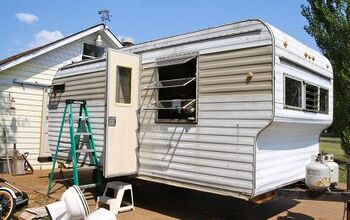
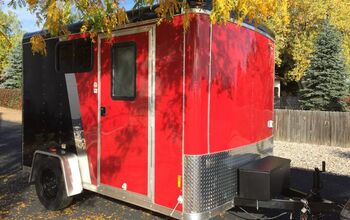

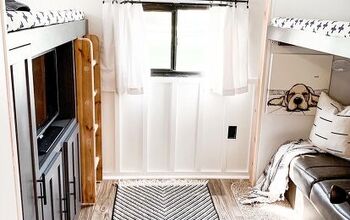



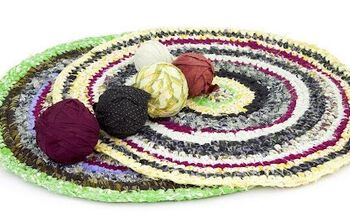






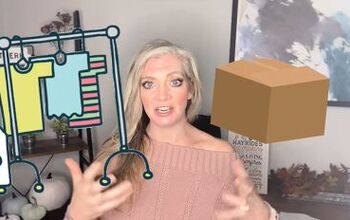


Comments
Join the conversation
Thank you